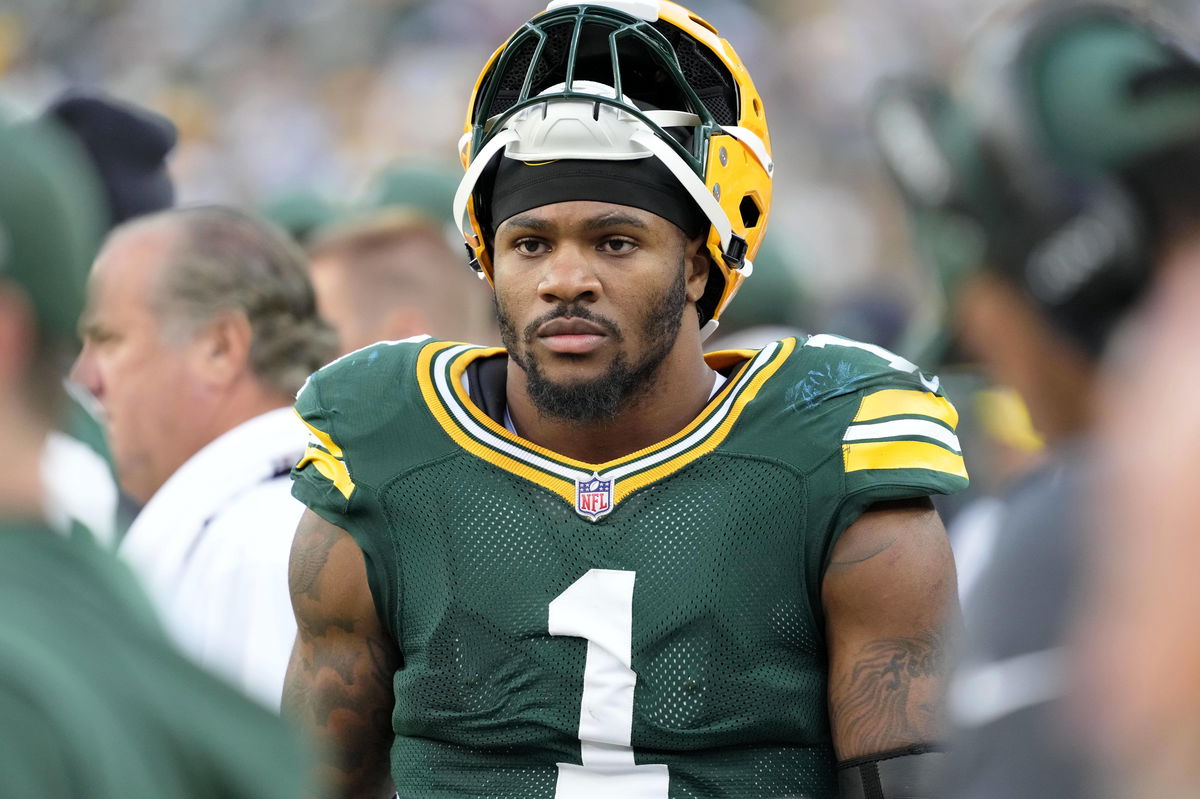
Imago
NFL, American Football Herren, USA Detroit Lions at Green Bay Packers Sep 7, 2025 Green Bay, Wisconsin, USA Green Bay Packers defensive end Micah Parsons 1 walks on the sideline during the fourth quarter at Lambeau Field. Green Bay Lambeau Field Wisconsin USA, EDITORIAL USE ONLY PUBLICATIONxINxGERxSUIxAUTxONLY Copyright: xJeffxHanischx 20250907_jcd_sh5_0222

Imago
NFL, American Football Herren, USA Detroit Lions at Green Bay Packers Sep 7, 2025 Green Bay, Wisconsin, USA Green Bay Packers defensive end Micah Parsons 1 walks on the sideline during the fourth quarter at Lambeau Field. Green Bay Lambeau Field Wisconsin USA, EDITORIAL USE ONLY PUBLICATIONxINxGERxSUIxAUTxONLY Copyright: xJeffxHanischx 20250907_jcd_sh5_0222
The Micah Parsons trade saga isn’t over. A fine print in the trade agreements that was previously unknown has sparked debates once again. When the Green Bay Packers shipped off defensive tackle Kenny Clark to the Dallas Cowboys in exchange for Micah, there was a “poison pill” clause in both contracts.
Watch What’s Trending Now!
The clause effectively prevents either of the stars from ending up with the divisional rivals of their previous teams. If they do, the price to be paid is a 2028 first-round draft pick. Dallas would owe this to the Packers if they ship off Clark to any NFC North team. And if the Packers ship off Parsons to the NFC East, they owe their 2028-first-round pick to Dallas. That’s tied up with a neat little bow.
This “poison pill” runs through the 2026 season, meaning any trade involving Clark or Parsons to the NFC North or East, respectively, would have to wait until at least 2027. The Packers have already done this once before. When they sent their quarterback, Brett Favre, to the New York Jets, the Jets couldn’t trade Favre to any NFC North team without paying the Packers with serious draft capital.
ADVERTISEMENT
ESPN Sources: Micah Parsons’ trade to the Packers included a poison pill that the Cowboys inserted to block a deal in the near future to the Eagles. pic.twitter.com/S4mjfM7CpQ
— Adam Schefter (@AdamSchefter) November 9, 2025
With teams making major moves on the trade deadline, the Cowboys also made a move. They gave away two premium picks packaged with DT Mazi Smith to the Jets in exchange for bringing DT Quinnen Williams to Dallas. That’s when this “poison pill” clause came to light.
“In that and any other deal, the Cowboys were prohibited from trading their 2028 first-round pick,” writes Adam Schefter. “The Packers’ 2028 first-round pick also was off limits, and sources involved in the deal acknowledged there were conditions that, until now, had not surfaced.”
ADVERTISEMENT
The Packers certainly have a precedent with Favre’s trade. But why was this move necessary for the Dallas Cowboys?
ADVERTISEMENT
Reasons behind the Micah Parsons trade clause
Cowboys owner and general manager Jerry Jones had noted that the trade for Parsons was done to bring them back to playoff relevance. But that vision had one clear hurdle, a long-time rival that sits atop the NFC East at the moment: the Philadelphia Eagles.
When the trade chatter around Parsons first began, the Eagles were strong potential buyers. As per insider Jay Glazer, they offered “two ones, a three, a five, amongst other things.” That’s how badly the Eagles wanted Parsons to suit up for them. But the Cowboys weren’t having it.
Jerry Jones rejected all offers made by the Eagles, not wanting to hand over his most dominant pass rusher to his divisional rivals. So, when Parsons joined the Packers, Dallas made sure Parsons couldn’t go join the Eagles anytime soon. But even if Dallas had agreed to send Parsons to Philly, Parsons wouldn’t have been happy.
ADVERTISEMENT
As Parsons revealed back in early 2024, he just wanted to get away, and even skipped his pre-draft interview with the Eagles.
“I didn’t want to go home,” Parsons said in an interview. “I just wanted to get fresh, you gotta think I went to Penn State, it was time for me to get out of PA.”
Now, every time Micah Parsons pressures Eagles quarterback Jalen Hurts in their Week 10 matchup, Philly will feel that sting. Maybe after the 2026 season, the Eagles could try to get Parsons again. Until then, barring a trade to some place else, Parsons remains rooted in Green Bay.
ADVERTISEMENT
ADVERTISEMENT
ADVERTISEMENT
ADVERTISEMENT

